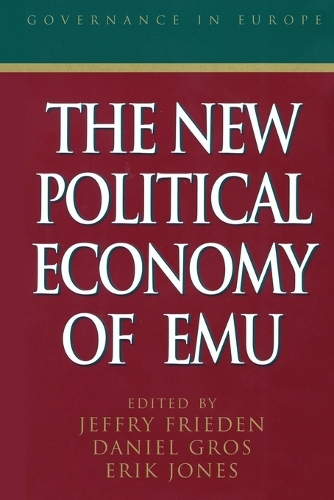
The New Political Economy of EMU
(Paperback)
Publishing Details
The New Political Economy of EMU
By (Author) Jeffry Frieden
Edited by Daniel Gros
Edited by Erik Jones
Contributions by Jeffry Freiden
Contributions by A J. Hughes Hallett
Contributions by Juan Jimeno
Contributions by Peter McAdam
Contributions by Jean Pisani-Ferry
Contributions by and Jose Vinals
Bloomsbury Publishing PLC
Rowman & Littlefield Publishers
3rd September 1998
United States
Classifications
Tertiary Education
Non Fiction
Monetary economics
Political economy
332.4566094
Physical Properties
Paperback
216
Width 146mm, Height 229mm, Spine 12mm
286g
Description
The creation of an economic and monetary union (EMU) in Europe is among the most important_and controversial_developments of the 1990s. This clear and balanced book brings together economists and political scientists to explain why the creation of a European monetary union is so contentious; how the debate has affected the political determination to construct a monetary union; and how it will influence the functioning of EMU into the next century. Focusing on how economics and politics interact both in the prelude to unification and in its aftermath, the authors provide an innovative analysis of a spectrum of related issues: how EMU relates to Europe's unemployment crisis, how it will affect the process of economic adjustment, what convergence means for the performance of the member states separately, and how the member states will decide both whether to participate themselves and whom else to admit to the monetary club.
Reviews
This is a serious book, and the lay reader will have to brace himself for outbursts of economists' algebra here and there. So the question of whether monetary union will indeed lead to political union, and, if so, in what form, will in due course receive its final answer. Mr. Frieden's and Mr. Jones's analysis help illuminate the likely outcome.... * The Economist *
This is a serious book, and the lay reader will have to brace himself for outbursts of economists' algebra here and there.
So the question of whether monetary union will indeed lead to political union, and, if so, in what form, will in due course receive its final answer. Mr. Frieden's and Mr. Jones's analysis help illuminate the likely outcome.
Author Bio
Jeffrey Frieden is professor government at Harvard University. Daniel Gros is deputy director of the Centre for European Policy Studies in Brussels, Belgium. Erik Jones is lecturer in politics at the University of Nottingham.
